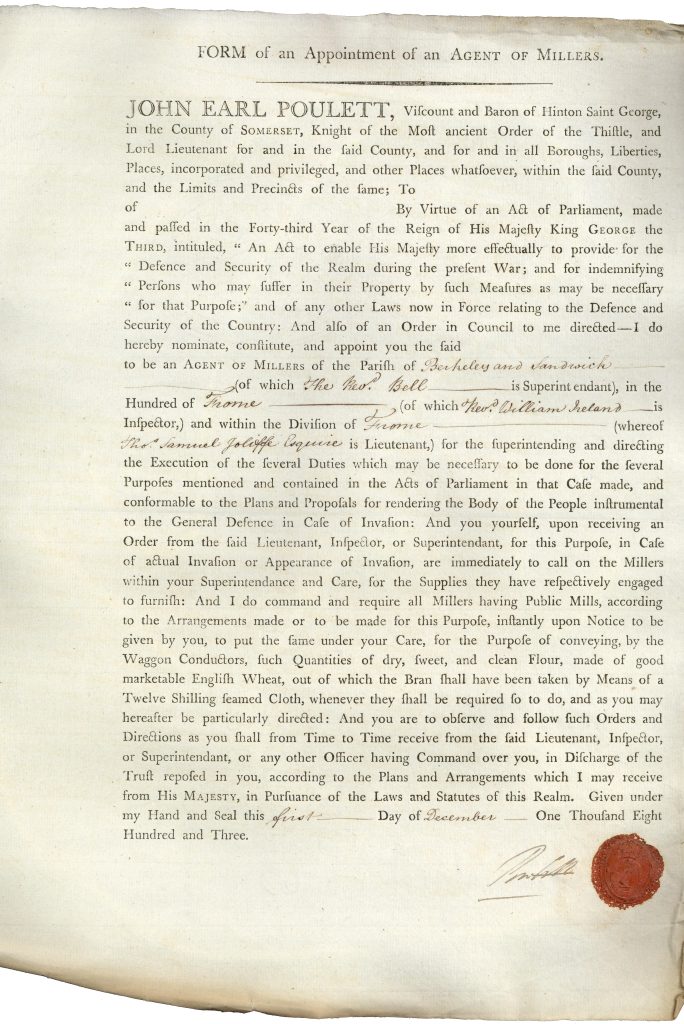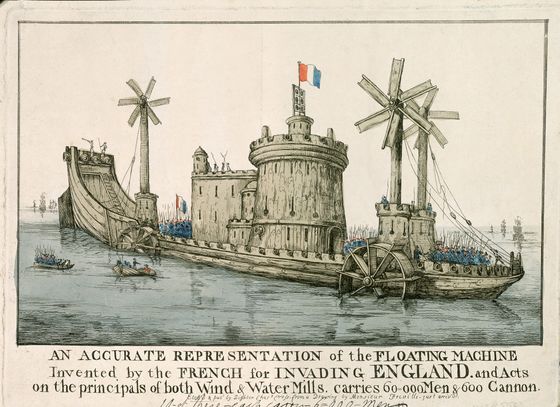| This week’s gem from the Owen Ward Collection gives a glimpse of the role mills would have played in an invasion of Britain by Napoleon. |

| The French Revolution of 1789 plunged Europe into lengthy wars. The Treaty of Amiens of 1802 between Britain and the new French leader Napoleon Bonaparte led to a brief respite of peace, but this was not to last, with Britain declaring war on France again in May 1803. Napoleon amassed a large army on the French coast and began constructing a fleet of invasion ships. It is said that he even considered using troop carrying balloons to launch an aerial assault, while contemporary satirical images depict supposed windmill powered floating craft. |

| In Britain extensive plans were made for what to do in the event of an invasion. The Defence of the Realm Acts of 1798 and 1803 made provisions for assembling volunteer regiments, in addition to the already existing part time militia. By 1804 nearly one in five able-bodied men was enrolled. In addition, the acts made provisions to ensure that, in the event of invasion, there would be a sufficient supply of wagons, boats, horses, cattle and food for the British forces. This is where the document shown above fits in. The form was issued, signed and sealed by John Poulett, fourth Earl Poulett, who was Lord Lieutenant of Somerset at the time. It appoints an ‘agent of millers’ for a parish, whose role ‘in case of actual invasion or appearance of invasion’ was to call on all millers in the area to put their mills under his authority, ‘for the purpose of conveying, by the Waggon Conductors, such quantities of dry, sweet, and clean flour, made of good marketable English Wheat, out of which the Bran shall have been taken by Means of a Twelve Shilling seamed Cloth, wherever they shall be required so to do’. The form includes blank spaces for the names of the agent and parish – in this case, the parish is ‘Berkeley and Sandwich’, but the name of the agent has not been filled in. As things turned out, victory at the Battle of Trafalgar in 1805 gave Britain control of the seas, and the feared invasion never took place. For more information see: British anti-invasion preparations of 1803–05 Defence of the Realm Act 1803 Meeting the French threat |
